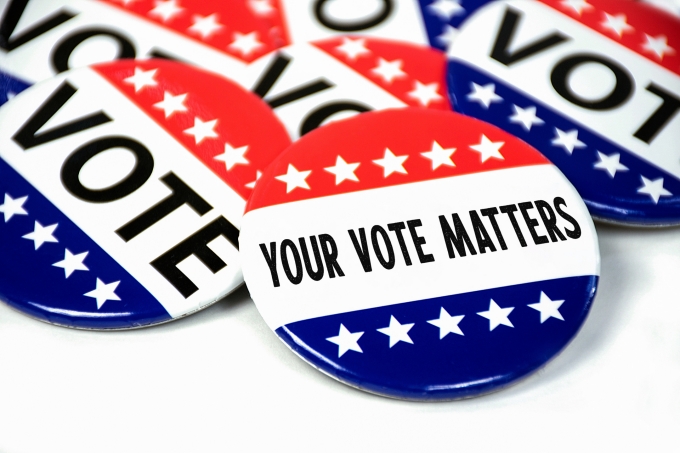Civil
Voting Rights Act Threatened –Again!
A recent decision by the 8th U.S. Circuit Court of Appeals challenges the right of private individuals and civil rights groups to sue under a crucial section of the federal Voting Rights Act. The ruling contradicts decades of precedent, potentially impacting the ability to challenge discriminatory voting laws. If upheld, historic cases like Evelyn Butts’ challenge to Virginia’s poll tax and recent victories in Hampton Roads could have been jeopardized. This decision is deemed a threat to voter protection and is expected to be a critical case if it reaches the U.S. Supreme Court.
#VotingRights #CivilRights #LegalChallenges #VoterProtection

By Leonard E. Colvin
Chief Reporter Emeritus
New Journal and Guide
In November 1963 housewife, and community activist Evelyn Butts of Norfolk filed a suit aimed at abolishing Virginia’s requirement that voters pay a poll tax.
Represented by attorney Joseph Jordan, Butts’ suit claimed the tax violated the equal protection clause of the 14th Amendment.
It also was a critical barrier to thousands of African-American and White residents from participating in the electoral process during the Jim Crow era.
Hearings before two lower federal courts ended in dismissals. Despite the two setbacks, Jordan filed the case with the U.S. Supreme Court, which decided to hear it in October 1965.
Butts’ case was combined with a similar one filed by another private citizen Annie E. Harper, which had been accepted by the high court first.
The justices accepted the suit’s claim, abolishing the poll tax in 1966 a year after the historic Voting Rights Act (VRA) was passed by Congress, striking down many of the other roadblocks to Black voter participation.
But a case winding its way up the federal court circuit now could halt citizens filing such suits to protect their access to the ballot.
On November 20, the 8th U.S. Circuit Court of Appeals based in St. Louis ruled that private individuals and civil rights groups like the NAACP do not have the right to sue under a vital section of the federal Voting Rights Act, to challenge discriminatory voting laws and policies imposed by states and locales.
This decision involves a redistricting case in Arkansas and contradicts decades of precedent-setting cases, most of which have been filed by the NAACP or Black individuals like Butts, based on Section 2.
The 2-1 decision by a panel of the 8th U.S. Circuit Court found that only the U.S. Attorney General can enforce Section 2 of the Voting Rights Act, which requires political maps to include districts where minority populations’ preferred candidates can win elections.
The majority said other federal laws, including the 1964 Civil Rights Act, make it clear when private groups can sue but said similar wording is not found in the voting law.
According to Civil Rights legal activists like Roy Perry-Bey, two historic winning cases filed in Hampton Roads would not have been possible if the proposed change had been in effect at the time.
For instance, Herbert Collins vs. The City of Norfolk said the city’s at-large system of electing council deprived Blacks of electing candidates of their choice in the early 1990s. It resulted in the creation of the city’s current ward system.
Two years ago, a single mother, Natasha Hathaway, filed a case in the same federal court that struck down Virginia Beach’s hybrid at-large and borough system, which deterred Black residents from electing candidates of their choice.
Now, four of the eleven members of the Virginia City Council are Black for the first time in its history.
“This is going to be the most critical voter protection case in a generation,” said Perry-Bey, who assisted in drafting the legal briefs and strategy for both the Collins and Hathaway cases.
“Private citizens have filed most of the cases to challenge racist election systems and policies with the help of the NAACP and other rights organizations seeking to address wrongs,” he said. “The idea that they no longer have that right to grievance and fight for their rights is insane, and I hope the U.S. Supreme Court dismisses it if it gets that far.”
In a statement, the Congressional Black Caucus noted that private individuals and civil rights groups have successfully given Black voters better representation through recent challenges to congressional maps drawn by Republican lawmakers in Alabama, Louisiana, and Florida.
“This decision by the appellate court is ill-advised, cannot stand, and should be appealed to the U.S. Supreme Court, which we hope will reaffirm that citizens have a private right of action to bring forward lawsuits under Section 2,” the group said.
Sophia Lin Lakin, director of the ACLU’s Voting Rights Project, called the ruling a “travesty for democracy.” She had argued the appeal on behalf of the two Arkansas groups.
Barry Jefferson, political action chair of the Arkansas State Conference of the NAACP, called the ruling “a devastating blow to the civil rights of every American and the integrity of our nation’s electoral system.”